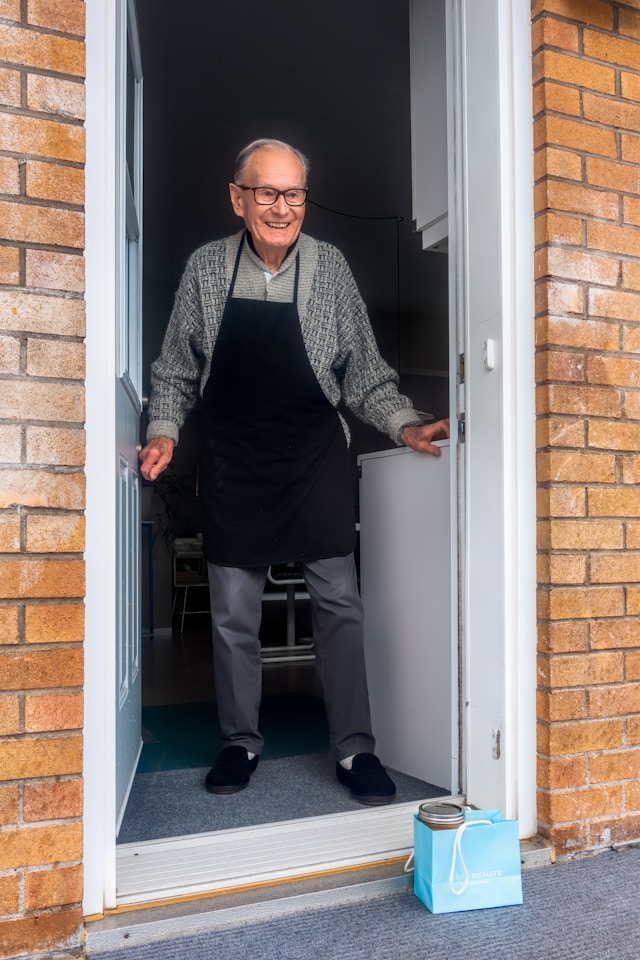As our loved ones get older, we’ll often encounter decisions that need to be made about their welfare. Often that culminates in whether they’re able to stay living in their home or they need further care, whether it be moving in with family or transferring to residential care options.
In the case of the latter, it can often be the best option, with professional care being available in many cases 24 hours a day, seven days a week. There are lots of options out there for residential care these days, all offering something slightly different to suit an individual person.
So, if you have loved ones who are starting to age, or health conditions are becoming more difficult to manage without professional help, here are the residential care options available to you…

Care Homes
Care homes are the most common option for elderly loved ones who can no longer live independently. They provide assistance from staff 24 hours a day, including help with things like washing, dressing, eating and getting around.
There are different types of care home, with the following most common:
- Residential care home: A residential care home focuses primarily on providing personal care. These are ideal for those who need help with day-to-day tasks, and are simply feeling the effects of older age and minor health issues.
- Nursing homes: Nursing homes provide more specialised care to suit medical needs and employ registered nurses. These are more for people who have medical conditions and disabilities that require frequent or continuous care.
Across both types of care home, residents will typically have their own room, which can be customised to their needs, with communal living spaces to interact and engage with other residents. You’ll find the likes of lounges, gardens and dining areas, which are great for socialising and making friends with other residents.
Extra Care Housing

Known also as assisted living, extra care homes are for those that still want to maintain a level of independence, but still also require a level of support. This typically combines independent living with on-site care services for when needed.
These are often self-contained flats or bungalows on a larger complex, and they differ from residential care homes as residents are more in control of their day-to-day. They can prepare their own meals, manage their own days and even leave the site as and when they please. Ultimately, everything is in their hands but there is still help if required.
Support for medication and health reasons is available, as well as other forms of personal care, household chores and the like. There are also regular social activities and communal areas so people can still feel a sense of community.
It’s often a good option for elderly people who wish to downsize but still value their privacy and autonomy, while also getting help when they need it.
Dementia Care Homes
Dementia care homes are specialised residential care facilities designed to meet the needs of individuals living with dementia or other memory-related conditions. Caring for someone with dementia requires specialised skills, and dementia care homes have staff trained to manage the unique behavioural and psychological symptoms associated with the condition.
These homes often have additional safety measures in place to prevent wandering, confusion, and agitation, which are common challenges for individuals with dementia.
In dementia care homes, the environment is often structured to promote familiarity and minimise confusion, with consistent routines and calming spaces. Additionally, sensory and cognitive activities are regularly organised to help stimulate memory and reduce anxiety.
If your loved one is experiencing signs of dementia like significant memory loss, confusion, or difficulty managing daily activities due to dementia, a dementia-specific care home may be the best option to ensure they receive the specialised attention and support they need.

Respite Care
Respite care offers temporary residential care for elderly individuals, providing family caregivers with a break from their caregiving duties. This option is ideal for elderly people who are usually cared for at home but need temporary support due to a carer’s absence or their own need for additional care following an illness or hospital stay.
Respite care can be provided in a care home or a dedicated respite facility and is available for varying durations, from a few days to several weeks. This gives both the elderly person and their family a chance to recharge, knowing that their loved one is being looked after in a safe and supportive environment.
Retirement Villages
For those who are relatively independent but want the reassurance of living within a community that offers care services, retirement villages can be an attractive option. These developments consist of self-contained properties, such as apartments or houses, within a communal setting.
Residents can enjoy a high degree of independence while also having access to on-site services such as healthcare, housekeeping, and organised social activities.
Retirement villages often come with additional amenities such as swimming pools, gyms, restaurants, and shops, providing a comfortable and engaging environment for older adults. This option is particularly suited for individuals who do not yet need extensive care but want the peace of mind of having help close by if their needs change in the future.

Leave a Reply